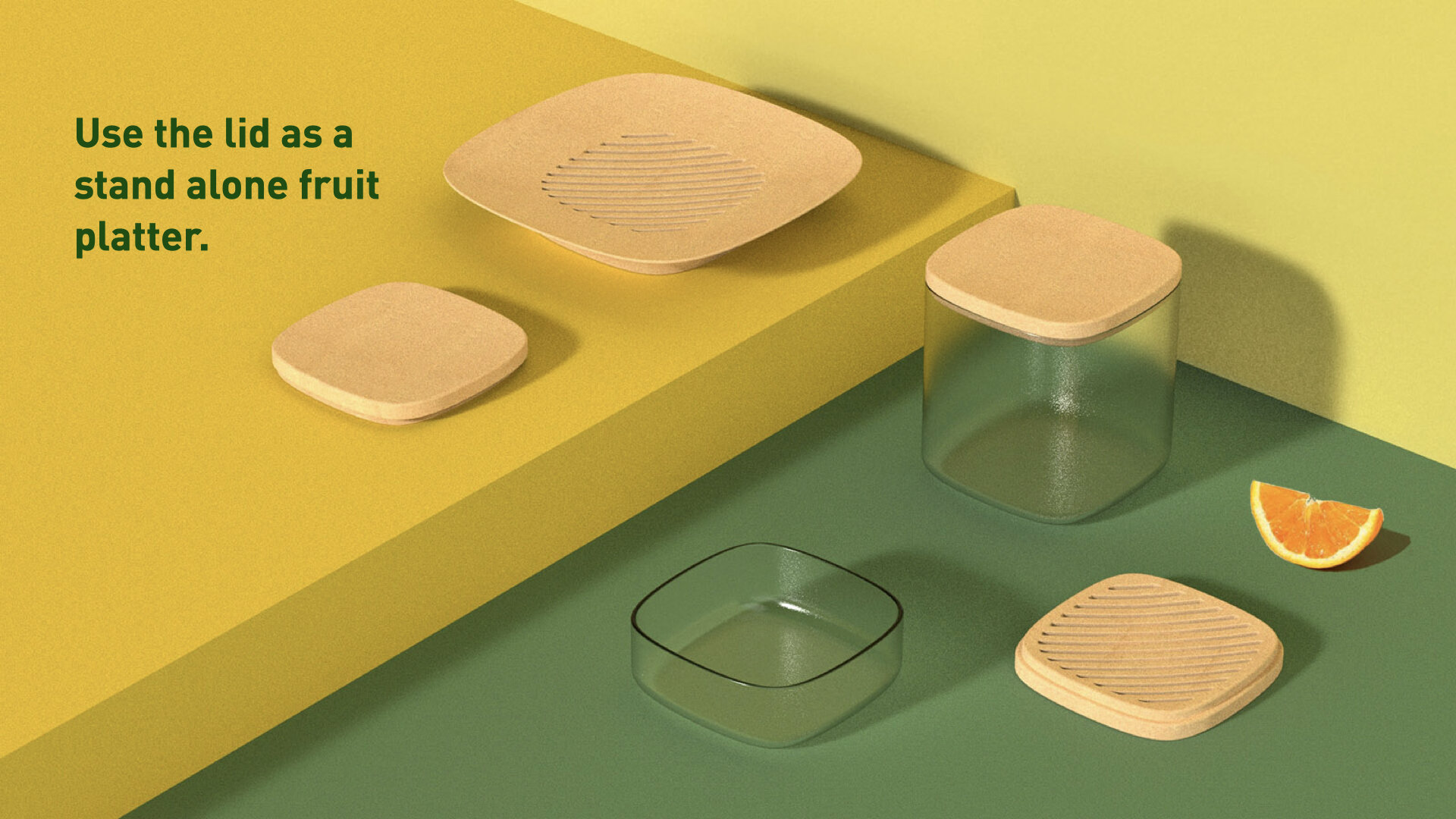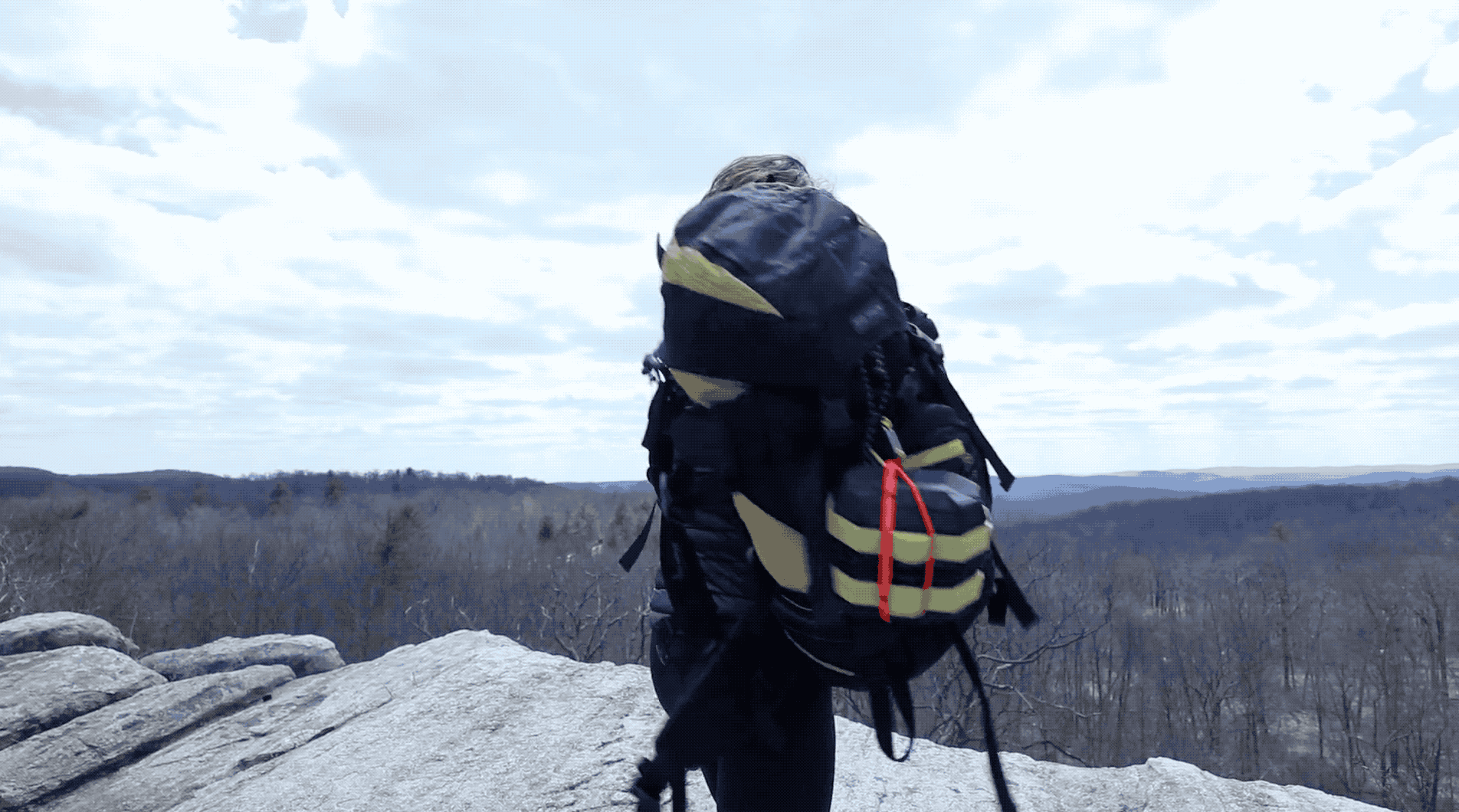
Student Projects
Products, Mobile Apps, Platforms, Thesis Work, and Design Thinking.
Applications are open! Deadline Jan. 15
〰️
Applications are open! Deadline Jan. 15 〰️
Featured Projects
Latest Projects
The Aquarius: A Seasoning Controller for Better Health
The Aquarius is a speculative seasoning controller designed to curb salt and oil overuse for better health. The precise bottle design allows the user to only pour out the recommended daily amount—not a drop more. First-year student Gaoming Lyu says her product design started with a traditional Chinese recipe, the tomato scrambled egg. "It's a favorite dish that my parents often cooked during my childhood," she explains. "I noticed that the flavor of this dish began gradually changing, becoming much saltier than before. I discovered that my father was adding more and more salt with each passing year." This experience in her family's kitchen attracted Gaoming's attention to how people's tastes become heavier as they age—a significant issue as salt intake in China is confirmed to be among the highest in the world.
Oasis Market: Finding a Solution to Food Deserts
Oasis Market is an online grocery service that delivers affordable, fresh food to residents living in food deserts. First-year student Stephen Joyce says his speculative company's solution to food apartheid involves combining empathy with economic relativization, investing directly into the communities they serve. "We seek to be an authentic and homegrown voice in our city, and we believe strongly that our primary duty is to our community, not our investors."
SafePub: The Best Way to Enjoy a Hassle-Free Night Out
First-year student Anne Keating created SafePub, a speculative project that commits to women and vulnerable minorities’ safety. Prioritizing the well being of women and LGBTQ+ individuals, the project envisions a network of allies in the form of pub owners, staff, taxi drivers, and local law enforcement.
Tea Waste Desiccant: A Sustainable Replacement
Have you ever wondered about those little “do not eat” packages of silica that accompany many shipped goods? That’s desiccant (from Latin, to “make thoroughly dry”)—widely used to absorb moisture from the air and reduce the humidity inside sealed containers. Desiccants are typically made from non-biodegradable materials like silica, but first-year student Qiting Fang reimagined a more sustainable solution. Tea Waste Desiccant is a speculative company aiming to transform tea leaf waste into natural desiccant and replace common non-biodegradable silica desiccant worldwide.
Living Pixels is a Smart Light Frame That Comes Alive in the Absence of Humans
First-year student Zekun Yang’s Living Pixels light frame was recently featured on the Arduino Blog. The article opens with, “As smart devices become more ingrained in our everyday lives, it’s perhaps only natural that we start to think of them as living things. What if such gadgets actually did have personalities and emotions that we as humans don’t ever see?” Zekun’s Living Pixels project illustrates this idea in luminescent style, as a picture frame that shows a static pattern of lights when anyone is nearby. When people aren’t present, and the device is left alone, it displays a range of emotions on its 16×16 LED matrix—from sleepy, relaxed, and even angry.
TRIGG≠R: Translating Contested American Terms to Reach a Shared Understanding
TRIGG≠R is a digital product suite that addresses language dissonance by translating American political terms in conversation. Created by first-year students Margarita Zulueta and Stephen Joyce, TRIGG≠R focuses on contested phrases to bridge the language divide through educational translation via an app and plugin.
"Frubo" Fruit Bowl: A Case Study in Product, Brand, and Experience
Frubo is a fruit bowl with a modern aesthetic and a hidden agenda. Masquerading as a simple piece of home decor to store fruits and vegetables, Frubo creates a space for the user to store fruits that they want to consume immediately on the upper platter, and fruits that they would save for another day in the bottom portion of the container. Frubo is designed to live everywhere except the kitchen, with the intent of treating fruits the same way that we treat flowers: as pieces of beauty to be enjoyed at the height of their bloom.
2nd Annual Products of Design Holiday Gift Guide!
It’s that time of year again! We’re thrilled to bring you our second annual MFA Products of Design Holiday Gift Guide, featuring dynamic and delightful objects and interventions by MFA PoD alumni, faculty, lecturers, and guests. This year, in these highly virtual times, we’re thinking more expansively about what a “gift” might mean. Click below to check out products, events, courses, and experiences designed by our PoD community at large.
Brand New MoMA Product: Roller Coasters!
One of the most anticipated products to come out of PoD’s partnership with MoMA is the set of Roller Coasters—ingenious drink coasters designed by Class of 2020 alum Hui Zheng. Check it out on the MoMA Store website!
The Solar Sleeve: Power on the Go
First year Katy Yuelapwan created the The Solar Sleeve featuring a top layer with solar cells embedded amongst the curvilinear surface, with a bottom layer with silicone straps, and a button that connects both layers. The button allows the product to conserve energy and for the two parts to nestle into each other when they are not in use. It allows the user to use stored up energy as they are walking through a desert wasteland in 2052. The challenges of this project were fitting functionality within the form that was distinguishable as an iteration. The successes of this project lied within utilizing Keyshot to implement Katy’s vision with materiality in mind.
Narrateam: Open-Sourcing Intersectional Feminist Resources
First-year, Margarita Zulueta created Narrateam, a platform that offers a centralized database for intersectional feminists to provide their own narratives and learn from the narratives of others, in order to gain a better understanding of the movement. Narrateam members can use the platform to share resources, events, and news items that are relevant to the movement and connect with like-minded individuals and organizations.
Steam Mouse Iron
For 3DPD1, first-year Qiting Fang created the Steam Mouse iron. She initially looked at the form of curvilinear and planar volumes before function was given to the product. Qiting worked through many iterations and landed on this wonderful redesign of a widely used home good.
Fruiting Bodies: Fungal Futures for Collaborative Survival
Helen Chen’s thesis, Fruiting Bodies: Fungal Futures for Collaborative Survival, explores how new material ecologies and interspecies consciousness—the acknowledgment that we live in complex ecosystems involving both human and non-human life—can create a paradigm shift in current industrial modes of production and consumption. In order to address the urgency of landfill and chemical waste streams around the world, she began her thesis exploration with prototyping biomaterials ranging from bacterial cellulose to algae-based bioplastics and mycelium.
FireLink: Fighting Fire with Data
Theodore Scoufis developed FireLink, an information management ecosystem for firefighters that focuses on the 4 minutes and 30 seconds between receiving the call from dispatch and arrival on the scene. The purpose of the system is to provide firefighters with real-time insight into the conditions of the building they are responding to. Theodore explains that information gathered by FireLink allows firefighters to make more effective decisions more efficiently, which will reduce the threat to civilians, firefighters, and property. FireLink is a bifurcated system of data collection and information dissemination. Data is collected via the data standpipe and disseminated in two main modes: the Command Center tablet application and the helmet-mounted augmented reality heads up display (AR HUD).
PACE: New Modalities for Slow Living in Accelerating Times
Having lived in two of the world’s busiest cities, Beijing and New York City, Sherry Wu developed an interest in the ever-quickening pace of contemporary life. But as the world has undergone a dramatic acceleration, there is also a counter-movement to embrace the concept of slow living. Sherry’s thesis, PACE: New Modalities for Slow Living in Accelerating Times, explores the tension between fast and slow modes of living. She identifies the balance between the two modes as a critical area of focus and views this balance based on the relationship between technology and culture.
A Proposed Redesign of the Promenade at Brooklyn Bridge
The Promenade at Brooklyn Bridge is a proposed redesign of the existing bridge walkway, created by first-year student Regena Reyes. Developed for an international design competition hosted by the Van Allen Institute, the project aims to enhance the visitor experience while addressing the challenges of public infrastructure. Regena's proposed design features additional curved walkways composed of eco-friendly materials to provide more space for visitors to take in the spectacular views from one of New York City's most beloved icons. At the same time, her proposal intends to alleviate congestion on the pathway, creating a more fluid traversal for cyclists and runners.
Launchathon-x: Solving Global Issues Through the Power of Collaborative Design
Launchathon-x invites creatives from all industries to take part in a series of virtual hackathons to solve real-time social, economic, and health problems. Born from the necessity to maintain creative collaboration during the global COVID-19 pandemic, first-year student Danna Krouham was inspired to create the website when she was unable to continue working with her classmates in the Products of Design studio.
Athena: Holding the Art World Accountable
Athena is a platform that creates a space for underrepresented (POC, women, non-binary, and queer) artists to come together to develop a community and voice for equality in the arts. Designed by first-year student Virginia Gordon, the project speaks directly to the revelation that museums globally are failing to demonstrate equitability in their collections, exhibitions, and acquisitions.
Lempup Handmade: Supporting China's Leprosy Villagers
Lempup Handmade is a service platform that aims to provide a self-sustainable economy for quarantined residents of China's leprosy villages. Designed by first-year student Wen Xie, the project is also intended as an anti-discrimination campaign.
Isolated and stigmatized, many residents living in these remote villages are skilled Miao/Yi craftspeople specializing in traditional silverwork, handmade embroidery, and dyed textiles. Wen created an app that would help the villagers share their craftwork—as well as their personal experiences—with the outside world.




























